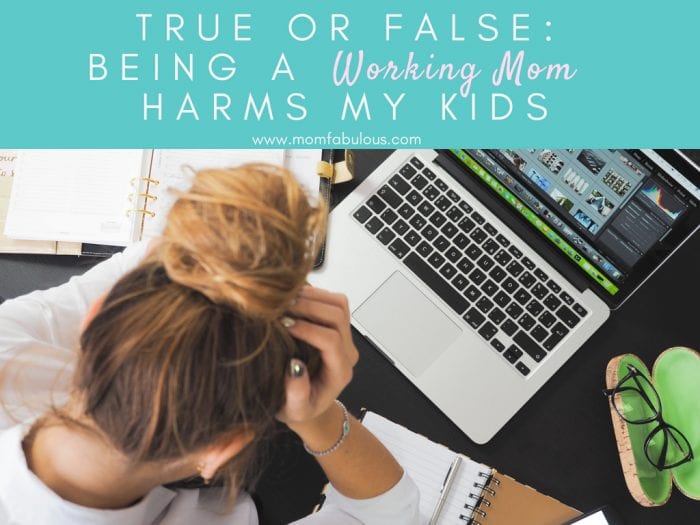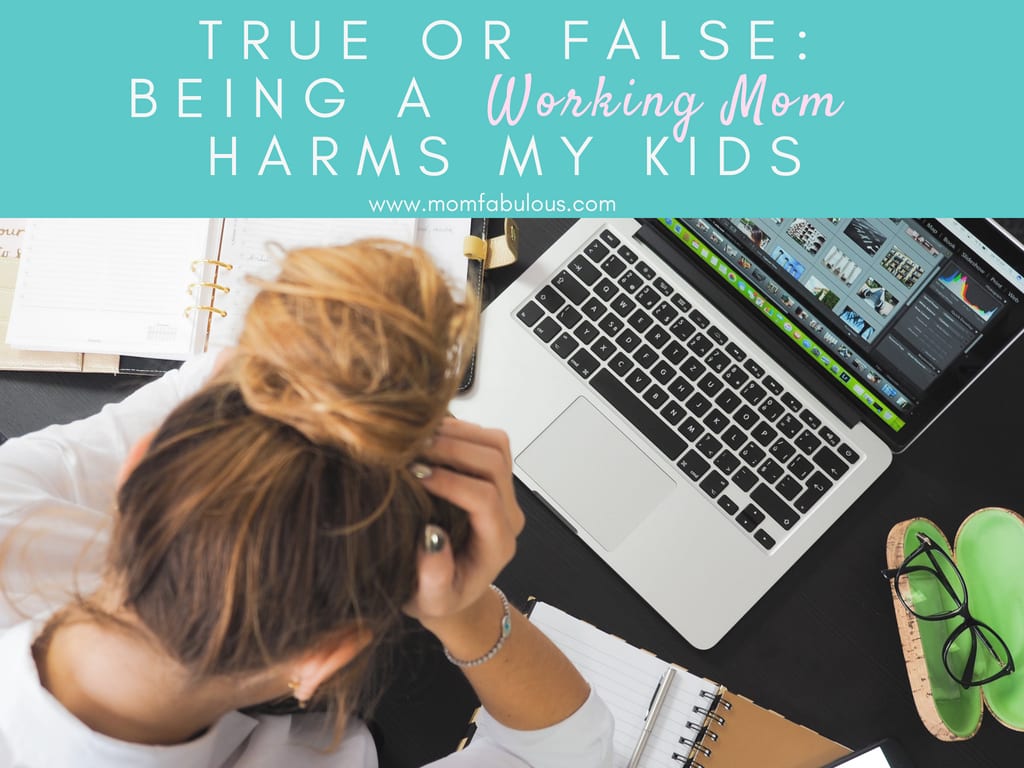
The American culture boasts many stereotypes about working moms. According to a Pew Research study, 51% of US men and women believe kids are better when they are raised by a stay-at-home-mom (compared to only 8% who believe children are better with a stay-at-home-dad), and 41% believe that the rise in working mothers is harmful to our society.
I’m abandoning my kids while I’m at work during the day.
It’s harmful for my child’s future if I don’t stay at home.
I wish I had more time to pay attention to my kids.
My kids must resent me for working instead of spending more time with them.
I can’t be a good employee at work and a good mom at the same time.
Working hinders my family life.
Ladies, those stereotypes have got to go! First all of, negative self-talk is harmful. Secondly, a working mother has no significant impact on their adult sons or daughters levels of happiness. And thirdly, research now proves that kids of working mother and kids of stay-at-home moms tend to do about the same academically and behaviorally!
In 2015 the Harvard Business School published Mums the Word! Cross-national Effects of Maternal Employment on Gender Inequalities at Work and at Home. They analyzed the outcomes at work and home for boys and girls being raised by an employed mother or a stay-at-home mother.
Working moms – this should be an encouragement to you! Whether you work 5 hours per week or 60+, you’re not ruining your kids life!
Daughters of working moms
When a mom is employed during her daughter’s early years, her daughter is more likely to participate in household chores and tasks.
When adult daughters have a working mother, the daughter is more likely to be employed as well. Additionally, they tend to work more hours, be better compensated, and are more likely to hold a management or supervisory role. This could be due to the fact that employed mothers teach their daughters a unique skill set that encourages their daughters to have a greater participation in their job or as a leader.
Interestingly, those same adult daughters are less likely to spend time on housework each week.
But working moms don’t have a significant impact on how much time her daughter spends caring for other family members.
Sons of employed mothers
When moms and dads of sons ages 1-15 equally split household chores, their sons are more likely to engage in housework as adults. Take heart, this is more associated with father roles than motherly roles!
Sons of employed mothers are also inclined to spend time caring for their family members, compared to sons of stay-at-home mommies. (For daughters of both stay-at-home and working mothers, the time spent caring for family members was the same.)
Sons and daughters of working mothers
Like I stated before, kids of both employed mothers and stay-at-home mothers achieve the same rates of academics. Differences in behavior is also indistinguishable.
Working mothers do not create a significant impact on their adult sons or daughters levels of happiness.
And kids of working mamas have more balanced views of gender roles – that men and women deserve to be treated equally.
A working mama or a stay-at-home mum – either way, you are a superhero! You can bust those stereotypes by being a great working and an awesome mommy too!
Time Saving Mom Hacks for the Busy Back to School Season + Family Circle
31 Days to a More Fabulous You: Creating Meaningful Relationships with Your Kids (Day 4)

